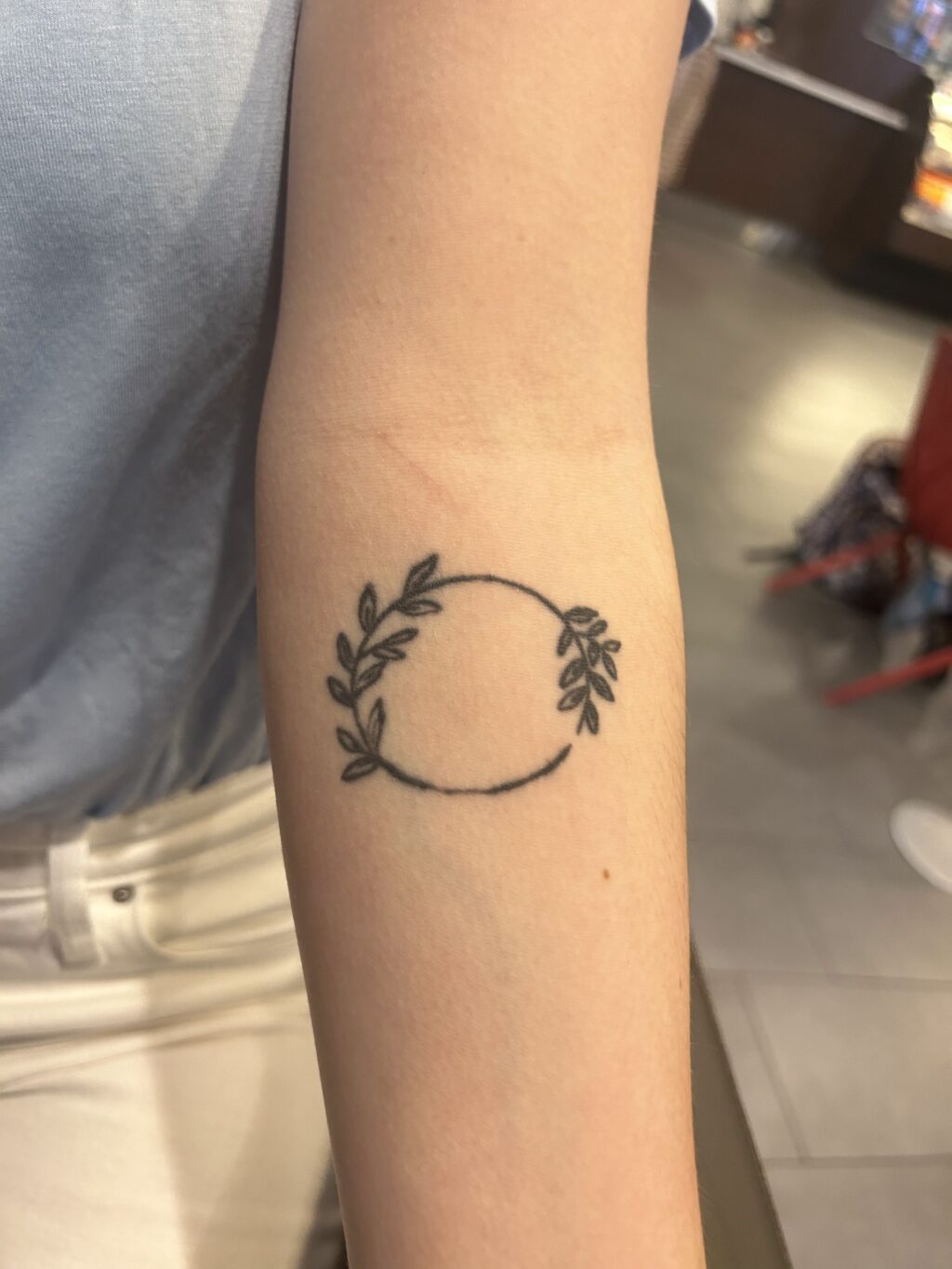Criticism of tattoos and piercings is unfair and unfounded
3 min read
Reese Kubricki has a tattoo of a dreamcatcher that she got on her forearm when she was 18 years old. | Abby Knowles, The Weekly Ringer
ABBY KNOWLES & MEL LAMM
Opinion Editor & Staff Writer
When people consider getting a tattoo or piercing, it’s common to hear negative comments like, “get it somewhere hidden or easy to cover” or “imagine how it’ll look when you’re older.” Some people even go as far as to say, “you’ll never get a job with a tattoo like that.” However, facial piercings and tattoos have gained popularity in recent years, making these critiques that people attempt to disguise as concerns antiquated, inappropriate, controlling and rather inaccurate. For this reason, the negative rhetoric surrounding these body modifications has to stop.
More people have tattoos these days than in previous generations, making them no longer isolated to less mainstream groups. According to a 2019 study by Ipsos, it is estimated that 30% of all Americans have at least one tattoo.
The study also found that “The vast majority of those with at least one tattoo (92%) say they are happy with it, and forty-six percent of respondents have had at least one tattoo for more than ten years.” Therefore, people’s happiness with their tattoos stands the test of time, unlike what critics say.
Today’s society does a phenomenal job of making young individuals feel insecure or self-conscious about their appearance. Whether it’s stretch marks, scars, small breasts or hairy arms, our generation is conditioned to feel uncomfortable in our own skin. Oftentimes, as a reaction to these society-induced insecurities, people choose to get tattoos, piercings or other body modifications in order to feel more comfortable in their own skin and more confident in their lives.
For example, junior psychology major Melissa Celebi shared how her background and insecurities have influenced her decision about body piercings. “Being from the Middle East, I was always self conscious about my nose,” she said. “I even asked my mom for a rhinoplasty for my eighteenth birthday.”
When her mom denied this request, Celebi took a different route to feel more confident in her own skin. “When she said no, I decided to get a nose piercing,” she said. “It was the best decision—drawing more attention to my biggest insecurity made me fall in love with it.”
In their Psychology Today article, researchers Kristin Broussard and Helen Harton explain that “despite the increasing popularity of tattoos, people who have them are still seen to have negative characteristics, lower levels of inhibition, competence, and sociability, and higher levels of promiscuity.”
This negative perception—key word, perception—of people with these types of body modifications assumes their character from their appearance. But weren’t we all told never to judge a book by its cover?
When it comes to the matter of employment, tattoos and facial piercings shouldn’t be an issue.
“I work at Crumbl and everyone has tattoos,” said junior communication and digital studies major Reese Kubricki. “I wasn’t looked down upon for having one—I am probably the only person with the least amount of tattoos or piercings.”
Though some employers still have policies against body image modification, this is not the case for most jobs.
According to the organization Support Tattoos and Piercings at Work, which advocates against the discrimination of people who have tattoos and piercings in the workplace, “76% of employees feel tattoos and piercings hurt your job interview chances.” However, this feeling is most likely caused by the criticism people with piercings and tattoos face. The truth—according to the same organization—is that “73% of people say they would hire staff that had visible tattoos” and “only 4% of tattooed or pierced people say they’ve actually faced discrimination in their current job.”
We’ve gotten to a point where too many people have tattoos and piercings for it to be acceptable to keep this negative rhetoric around these types of body modifications alive. We’re going to get tattooed and pierced, and society has to get used to it.
“Tattoos tell a story and if a job doesn’t want me to show and express everything I feel or want, then I wouldn’t feel comfortable working for someone like that,” said Kubricki.










